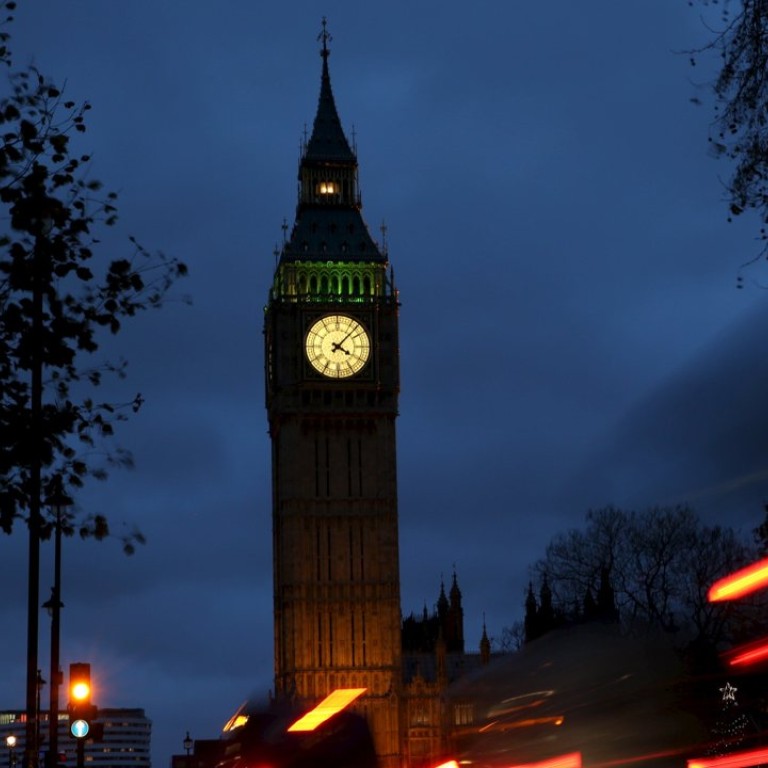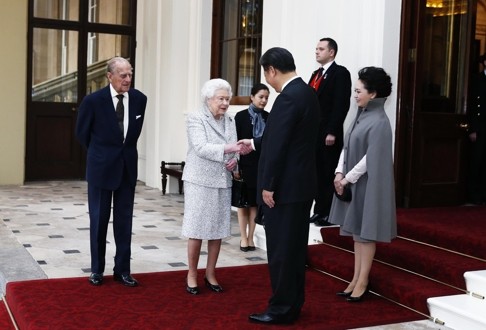
More than trade: Britain brings its values, backed by military power, to China-UK relationship
Lord Mandelson says strengthening UK-China relations isn’t strictly mercantilist, but also based on the UK’s willingness to address global issues in accordance with its values
When President Xi Jinping (習近平) came to stay recently as the Queen’s guest in the UK, most would not have expected the visit to become the success it grew into. Suddenly, something became visible about the UK-China relationship and you wondered why it had taken so long to emerge.
Britain no longer has an empire; we do not run the world and we are not even Europe’s largest economy. So what has Britain got that the others haven’t?
READ MORE: Full coverage of Xi Jinping’s state visit to the UK
The UK has much financial expertise to offer, based on our mistakes as well as successes, from both the private and public sectors. We can do this while stepping up efforts to facilitate the initial public offerings that will be required to bring more private finance to China’s state-run enterprises.
We must also assist China further to reform its financial system, which is now more exposed to systemic risk than ever before, with recent progress on liberalisation at risk of stalling or going into reverse.

The first of these is more constrained than the second. The global financial crisis, and the ensuing recession and austerity, meant that up until now Britain had to blunt its military spending. We still devote 2 per cent of gross domestic product to maintaining our military capacity, something that other European members of Nato do not.
We will have to work politically and diplomatically to defeat Islamic State’s warped ideology and defuse the grievances that are currently fuelling its recruitment
This matters to China, because in coalition with others, Britain is a military player and can intervene in conflicts beyond its borders when it wishes to.
The experience of Iraq has certainly sapped Britain’s appetite for such involvement. But Britain will never look to others to ensure its safety. We will join with them but never depend on them and that’s why, currently, we are taking action against Islamic State.
Which brings me to soft power. For example, we will have to work politically and diplomatically to defeat Islamic State’s warped ideology and defuse the grievances that are currently fuelling its recruitment. What China sees in Britain is an understanding of the world and an ability to lead political action, notably at the UN and in the European Union.
READ MORE: Cameron makes case for Britain to join Syria air strikes against Islamic State as opposition weakens

READ MORE: Global vision: UK-China relations could enter an era of unprecedented cooperation
This influence is not restricted to what the government does. British values and ethics – how we conduct ourselves towards each other and the rest of the world – and our rule of law are an example for people across continents, including in China.
So, have we reached a ceiling in UK-China relations? Trade and investment are the most obvious area for growth. Over time, Britain’s openness to China will be reciprocated. But the relationship is more than simply mercantilist. I think that what Britain says to China, helping to shape Chinese perceptions of European policy, will matter more, not less.
The international system is under considerable stress as the monetary cycle turns in the US, China slows, and emerging countries are exposed. Geopolitical tensions, economic sanctions and cyberattacks are compounding the economic problems.
READ MORE: Dealing with the rise of China: the US should learn from the British the art of the deal
Britain can help build a closer relationship between China and the major Western economies in addressing these issues and collaborating to strengthen and broaden institutions and systems to cope with them.
There will also be totemic issues, like the West’s recognition of China’s market economy status. Britain is in a position to counsel opinion in European capitals and Washington on this and many other frictions to come. Without doubt, there is a lot to fill for the UK-China relationship, almost certainly more than both yet realise.
Lord Mandelson is president of the Great Britain-China Centre and former UK cabinet minister and EU trade commissioner. He chairs Global Counsel, a strategic advisory firm
